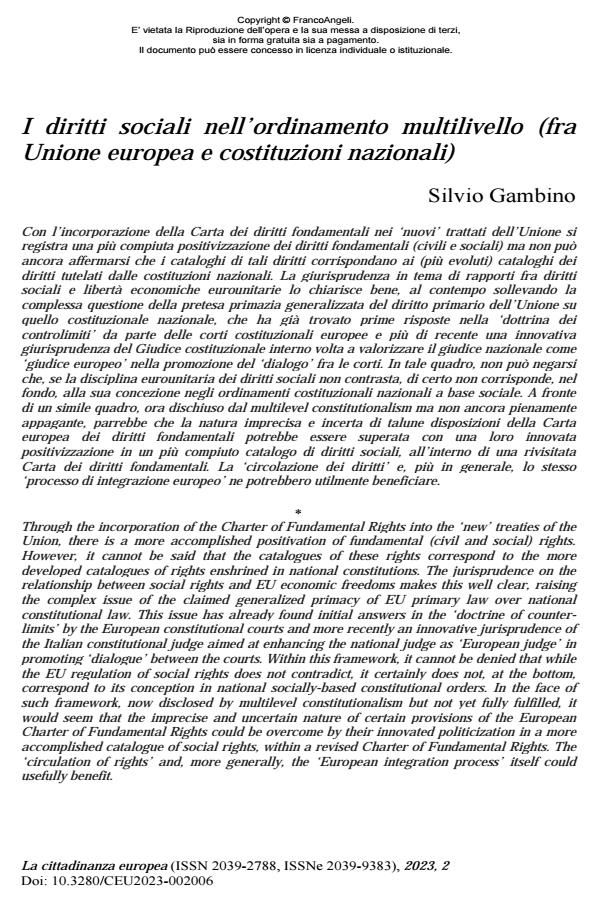I diritti sociali nell’ordinamento multilivello (fra Unione europea e costituzioni nazionali)
Journal title CITTADINANZA EUROPEA (LA)
Author/s Silvio Gambino
Publishing Year 2024 Issue 2023/2
Language Italian Pages 51 P. 79-129 File size 423 KB
DOI 10.3280/CEU2023-002006
DOI is like a bar code for intellectual property: to have more infomation
click here
Below, you can see the article first page
If you want to buy this article in PDF format, you can do it, following the instructions to buy download credits

FrancoAngeli is member of Publishers International Linking Association, Inc (PILA), a not-for-profit association which run the CrossRef service enabling links to and from online scholarly content.
Through the incorporation of the Charter of Fundamental Rights into the ‘new’ treaties of the Union, there is a more accomplished positivation of fundamental (civil and social) rights. However, it cannot be said that the catalogues of these rights correspond to the more developed catalogues of rights enshrined in national constitutions. The jurisprudence on the relationship between social rights and EU economic freedoms makes this well clear, raising the complex issue of the claimed generalized primacy of EU primary law over national constitutional law. This issue has already found initial answers in the ‘doctrine of counter- limits’ by the European constitutional courts and more recently an innovative jurisprudence of the Italian constitutional judge aimed at enhancing the national judge as ‘European judge’ in promoting ‘dialogue’ between the courts. Within this framework, it cannot be denied that while the EU regulation of social rights does not contradict, it certainly does not, at the bottom, correspond to its conception in national socially-based constitutional orders. In the face of such framework, now disclosed by multilevel constitutionalism but not yet fully fulfilled, it would seem that the imprecise and uncertain nature of certain provisions of the European Charter of Fundamental Rights could be overcome by their innovated politicization in a more accomplished catalogue of social rights, within a revised Charter of Fundamental Rights. The ‘circulation of rights’ and, more generally, the ‘European integration process’ itself could usefully benefit.
Silvio Gambino, I diritti sociali nell’ordinamento multilivello (fra Unione europea e costituzioni nazionali) in "CITTADINANZA EUROPEA (LA)" 2/2023, pp 79-129, DOI: 10.3280/CEU2023-002006